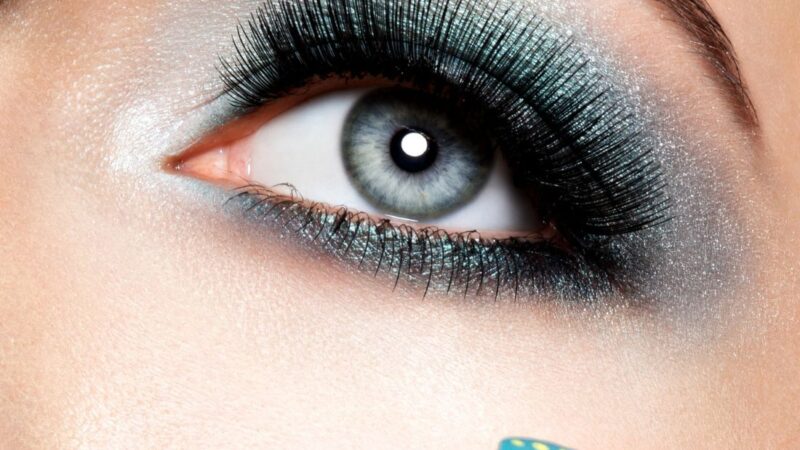Unlocking the Secrets: Understanding Skin Care Product Ingredients

Are you ready to dive into the exciting world of skin care products? Well, you’re in the right place! In this blog, we’ll be discussing the importance of using effective skin care products to achieve a healthy and radiant complexion.
But wait a minute, what makes a skin care product effective? The secret lies in its ingredients! Some of the best ones out there include powerful antioxidants like vitamin C & vitamin E, soothing agents like aloe vera, and hydrating ingredients like hyaluronic acid. These superstars help to nourish, protect, and rejuvenate your skin, leaving it looking and feeling its best.
We will also discuss about the ingredients to avoid! Harsh chemicals like sulfates, parabens, and artificial fragrances can do more harm than good, causing irritation and disrupting your skin’s natural balance.
So, are you ready to make smarter choices when it comes to your skin care routine? Let’s get started on this journey towards healthier, happier skin together!

The Best Skin Care Products Ingredients
Hyaluronic Acid:
Hyaluronic acid is a natural substance found in the skin that has the ability to hold and attract moisture. When used in skincare products, it acts as a powerful humectant, drawing moisture from the environment and delivering it to the skin, thus helping to hydrate and plump the skin. It also has anti-inflammatory and antioxidant properties, making it beneficial for improving the overall health and appearance of the skin.
Hyaluronic acid can be used at any time of the day, but it is particularly effective when applied in the morning and/or evening as part of a consistent skincare routine.
In the morning, it can help to hydrate and prep the skin for the day ahead, while in the evening, it can aid in replenishing the skin’s moisture levels and supporting overnight repair processes.
It is also important to note that hyaluronic acid is safe to be used every day, and in some cases, it may even be beneficial to use it multiple times a day, especially if your skin is in need of a hydration boost. However, it is always important to follow the instructions on the specific product you are using and to monitor how your skin responds to ensure you are not overdoing it.
Retinol:
Retinol is a significant derivative of Vitamin A that plays an important role in supporting cell turnover and collagen production. It is one of the few skin care ingredients that the skin can genuinely absorb and change at the cellular level, making it incredibly potent and effective.
The benefits of retinol are manifold; it helps in diminishing fine lines and wrinkles, bolstering elastin and collagen production, combating hyperpigmentation, and have pore-minimizing effects. It aids in achieving a smooth and homogeneous complexion due to its excellent exfoliation properties.
Enjoy: DIY Herbal face mask recipes.
Retinol can be used in conjunction with other skin care ingredients such as hyaluronic acid that aids in hydrating and rejuvenating the skin, and it works well with Vitamin C, which aids in collagen production and hyperpigmentation reduction. However, it should not be used with other potent active ingredients like benzoyl peroxide, as it can destabilize retinol, reducing its effectiveness.
When to use it?
It should ideally be applied at night before bed because sunlight can deactivate the ingredient, thus diminishing its benefits.
How often?
It depends on your skin’s tolerance. At the beginning, it may be wise to use it once or twice a week and gradually increase it to nightly use as the skin develops tolerance.
Who should & who shouldn’t it
Although retinol can provide immense benefits, it’s not for everybody. Generally, people with mature or acne-prone skin are advised to use retinol in their skincare routine.
However, those with sensitive skin type or with conditions like rosacea or eczema should avoid retinol, or consult with a dermatologist before incorporating it into their skincare routine.
Pregnant women and nursing mothers are also recommended to steer clear of retinol because of the possible risk it poses to the undeveloped fetus or infant.
Vitamin C & E:
Vitamin C is revered in the skincare world for its plethora of benefits. It aids in boosting the skin’s collagen production which helps in reducing signs of aging like fine lines and wrinkles, while also brightening the skin and fighting against sun damage, hence making it an ideal addition to skincare routines of individuals who are experiencing skin dullness, hyperpigmentation, or visible signs of aging.
However, those with sensitive skin should be cautious about using it as Vitamin C can potentially aggravate skin sensitivities. Certain ingredients that complement Vitamin C in skincare products include hyaluronic acid for enhanced moisturization and Vitamin E, which, together with Vitamin C, provides a strong antioxidant action. It is recommended to use Vitamin C-infused skincare products in the morning for protection against free radicals throughout the day.
Avoid using it with Benzoyl Peroxide
Vitamin C should not be used with benzoyl peroxide, as it can oxidize the Vitamin C and make it useless.
How often
As for the frequency of its usage, skin care experts suggest using skin care products that contain Vitamin C once or twice daily but it could vary depending on an individual’s skin tolerance and need.
Aloe Vera
Aloe Vera is a miraculous plant and we all love its benefits, especially when dealing with sun burns. It’s benefit to soothe the pain is a well-known one. The viscous gel within its thick leaves possesses anti-inflammatory agents and cooling properties that help alleviate the pain and redness. It’s incredibly soothing, making it an excellent choice for those with skin conditions such as psoriasis or eczema, as well as those with particularly sensitive skin type, we also tend to reach for it when in need to moisturize dry skin.
However, despite its broadly beneficial properties, those with a known allergy to garlic, onions, or tulips may also be allergic to aloe vera and should refrain from using it. Reactions can vary depending on the individual, thus it’s advised to perform a patch test before applying it thoroughly.
It’s also worth noting that aloe vera should not be used alongside strong exfoliants or skin-thinning ingredients, such as retinols or alpha hydroxy acids, as the combination may cause unexpected reactions or heightened sensitivity.
On the other hand, aloe vera pairs exceptionally well with hyaluronic acid and ceramides, known for their moisturizing capabilities and skin barrier support, respectively.
As a rule of thumb, it’s recommended to use aloe vera products no more than once per day, in case of sun burns it can be applied up to three times a day though. Overuse could potentially lead to dryness or peeling, counteracting its many positive effects. The key is to experiment gently and mindfully, tailoring your use to fit your skin’s unique needs.
Moreover, for severe burns, it’s vital to get immediate medical attention rather than resorting to aloe vera or other home remedies.
The advantages of applying aloe directly to the skin are more likely to be experienced when using a natural aloe plant rather than a processed product.
Niacinamide:
Niacinamide, also known as Vitamin B3, is a skin care ingredient commonly used in many beauty and skincare products due to its plethora of main benefits. This powerful ingredient is renowned for its ability to improve skin elasticity, enhance skin barrier function, even out skin tone, and reduce the appearance of fine lines and wrinkles.
Given these benefits, niacinamide is an excellent choice for those who want to maintain a youthful, radiant skin regardless of age, and can be used in daily skincare routines, applying it both in the morning and evening to see optimal results.
However, those with sensitive skin should avoid using it as it might cause mild irritation.
Works well with:
Niacinamide works well with other ingredients like hyaluronic acid which helps to lock in moisture, and ceramides that strengthen the skin’s protective layer.
Don’t use it with:
However, it’s important to note that skincare products containing Vitamin C should not be used with Niacinamide. Vitamin C can cause Niacinamide to convert into Nicotinic acid, which may lead to skin redness and tingling sensations.
Moreover, skincare products containing high concentrations of alcohol may also have adverse effects when used with Niacinamide.
It is therefore recommended to consult with a dermatologist before introducing new ingredients into your skincare routine.
Ingredients to Avoid in Skin Care Products
Harmful skin care ingredients, explained! Simple, yet an important list of ingredients you don’t want listed on your beauty products ingredients list, also dont forget to check 30 must-know beauty tips, worthy read! We discussed in more details each good ingredient, but there is no point to discuss in depth each harmful substance, just avoid using them:
- Parabens: These are often used as preservatives, but they have been linked to hormonal disruption and, in some cases, cancer,
- Artificial Fragrances: Many products contain artificial fragrances, which can trigger allergic reactions and other skin irritations,
- Sodium Lauryl sulfate: This harsh chemical is often used to create a foaming effect in cleansers and washes, and it can lead to dry, irritated skin,
- Phthalates: These are used to enhance the texture and spreadability of a product, but they have been linked to hormonal disruptions, developmental issues, and even cancer,
- Mineral Oil: While it might sound natural, mineral oil can actually clog your pores and lead to breakouts.
- Formaldehyde: This preservative is a known carcinogen that can also cause skin irritation and allergy symptoms,
- Alcohol: While not all alcohols are bad for your skin, ones like isopropyl, SD, and denatured alcohol can be overly drying and irritating,
- Synthetic Dyes: These can cause skin reactions and are often made from coal tar which is a known carcinogen,
- Triclosan: Often used in antibacterial products, this ingredient can disrupt your skin’s microbiome and has been linked to hormonal disruptions,
- Petroleum-derived ingredients: They can clog pores, leading to breakout and acne,
- Chemical Sunscreens: Some chemical sunscreens can cause skin irritations and allergies and has been linked to hormone disruptions.
Conclusion:
In a recap of the best skincare product ingredients, it’s essential to remember to avoid harmful ingredients. Incorporate products with vitamins C & E, hyaluronic acid, retinol, and aloe vera for beneficial effects.
Always be aware of potential allergens and harsh chemicals that may cause more harm than good to your skin.
This serves as an encouragement to make informed choices for a healthier skin, ensuring you’re nourishing and treating your skin with what it truly deserves.
Thanks for sticking with us till the end! Hope you unlocked some useful secrets about skin care products.
If you liked it, why not share it on Pinterest or save it for a quick reference later?
https://www.beauty-tips.net/unlocking-the-secrets-understanding-skin-care-product-ingredients/





